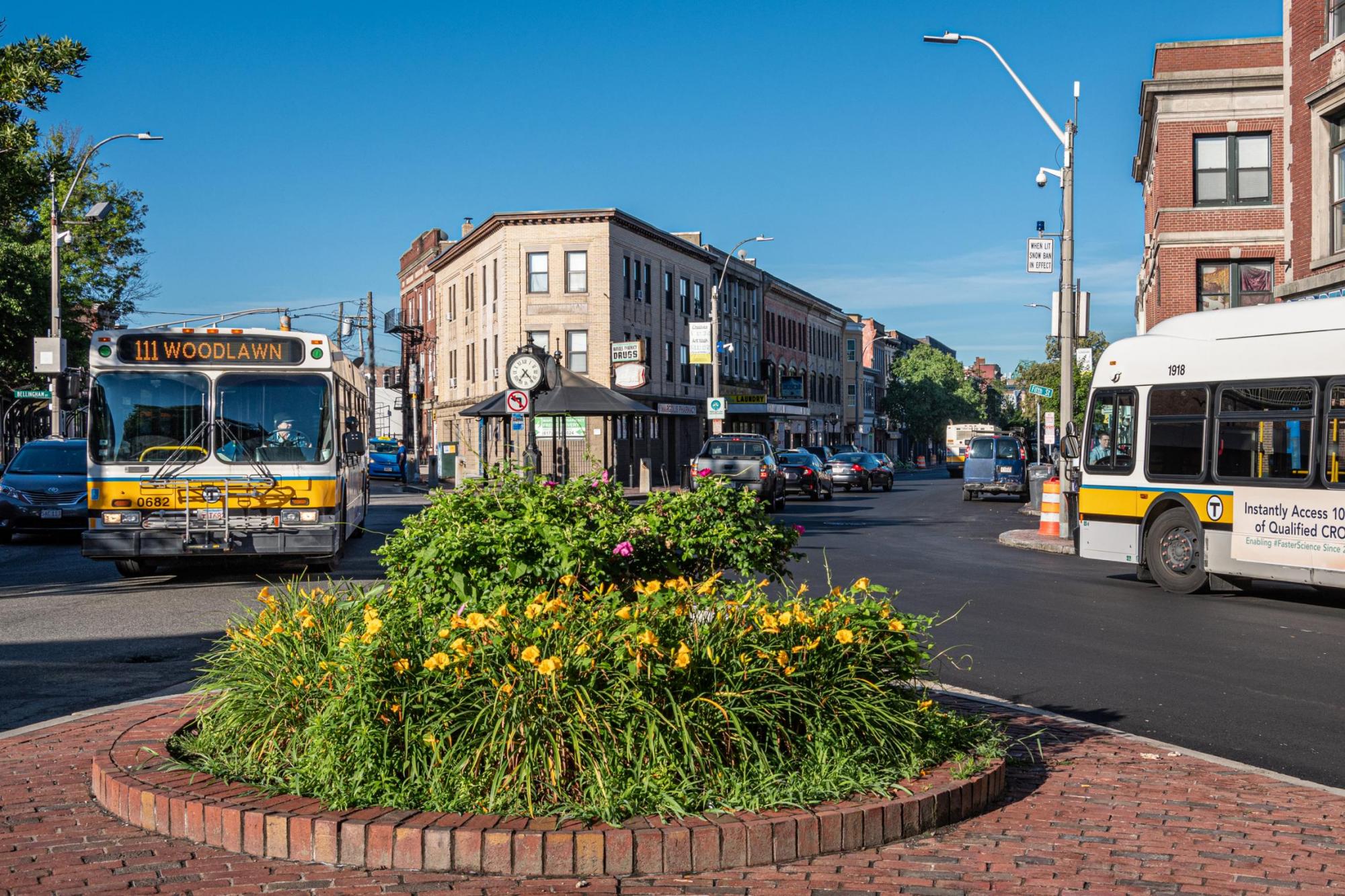Chelsea Regional Transportation Improvements

Chelsea may be the smallest city in Massachusetts, but its residents are essential to Greater Boston’s diverse, vibrant social and economic growth.
Many of the city’s nearly 40,000 inhabitants rely on public transit to get to school and work. Recently, travel delays have increased on Routes 1 and 16, impacting commuters who rely on bus routes 111, 426, and 428 each day. Chelsea does not have a subway stop, making these transit barriers even more challenging for city planners and government officials.
Together with MassDOT and the City of Chelsea, the MBTA is working to make transportation more efficient, dependable and equitable. Among the numerous projects scheduled to start soon or already underway, are important initiatives that will expand public transit service, improve safety for riders and MBTA workers, improve accessibility at existing stations and MBTA facilities, and repairs to roads and bridges throughout the region.
Here are some of the projects we’re working on right now. Check back here for more info, or tell us what you need at a Community Meeting.
Projects Serving Chelsea
-
Tobin Bridge/Chelsea Curves Rehabilitation
Over $200 million investment
-
More than 63,000 vehicles cross the Tobin Bridge every day, including MBTA bus routes 111, 426, and 428. Modernizing and rehabilitating the bridge and Chelsea Curves section of Route 1 is critical to the economic future of Greater Boston.
Work is currently underway, and includes lane closures on both the north and southbound levels of the bridge through 2020.
The MBTA is offering fare mitigation on the SL3 and Commuter Rail during construction.
-
Chelsea Commuter Rail Station
$37.7 million investment
-
Today, there are 2 Chelsea MBTA stations: one on the SL3, and one on the Newburyport/Rockport Commuter Rail Line, 2,000 feet away.
The current Chelsea Commuter Rail station is not accessible to people with disabilities, and is inconvenient for transfers to other modes.
In 2021, a fully accessible Commuter Rail station will open next to the current SL3 stop, just behind Market Basket on Everett Avenue. It will feature bike parking and easy access to the SL3. Located in Zone 1A, a monthly Commuter Rail pass from Chelsea will cost $90.00.
-
SL3 Service
$56.7 million investment
-
In 2018, we extended the Silver Line into Chelsea and Everett for easier connections to South Station and the airport.
In Chelsea, the Silver Line 3 (SL3) travels on its own right of way, avoiding traffic on Routes 1 and 16. While the Tobin Bridge is under construction, fares are not being collected for customers traveling inbound from Chelsea, Bellingham Square, Box District, and Eastern Ave.
-
North Washington Street Bridge
$176.8 million investment
-
The North Washington Street Bridge, more commonly known as the Charlestown Bridge, carries nearly 40,000 vehicles (including the 111 and 426/428 bus routes) from Charlestown to the North End every day.
The bridge’s 2 center lanes have been closed since 2003, and work on a replacement bridge began in 2018. The new bridge will include 4 vehicle lanes, a dedicated bus lane on the southbound side, and sidewalks and bicycle lanes on both sides.
-
Chelsea Street Bridge Notification Program
-
The Chelsea Street Bridge, which serves East Boston and Chelsea, carries more than 26,000 vehicles per day, including the SL3, 112, and 114 buses. When the bridge lifts to its full height of 175 feet to allow marine vessels to pass under, traffic on both sides of the bridge stops, which can delay MBTA service.
In July 2019, MassDOT launched an early notification pilot program to inform the traveling public in advance when the bridge is scheduled to be lifted. Riders can sign up for T-Alerts, follow @LoganToChelsea on Twitter, or check area message boards for notifications.
In September 2019, the MBTA joined Chelsea, Boston, Massport, and Mass Highway in supporting MassDOT’s application to change the federal regulations that would provide a lower option for lift height on the Chelsea Street Bridge. Lowering the lift height will reduce the time the bridge is open and delaying vehicle traffic, including MBTA bus service.
Learn more about the Chelsea Street Bridge Notification Program
Building a Better T
As part of our $9.6 billion, 5-year capital investment plan, we're renovating stations, modernizing fare collection systems, upgrading services for our buses, subways, and ferries, and improving the accessibility of the entire system.
Building a Better T
As part of our $9.6 billion, 5-year capital investment plan, we're renovating stations, modernizing fare collection systems, upgrading services for our buses, subways, and ferries, and improving the accessibility of the entire system.